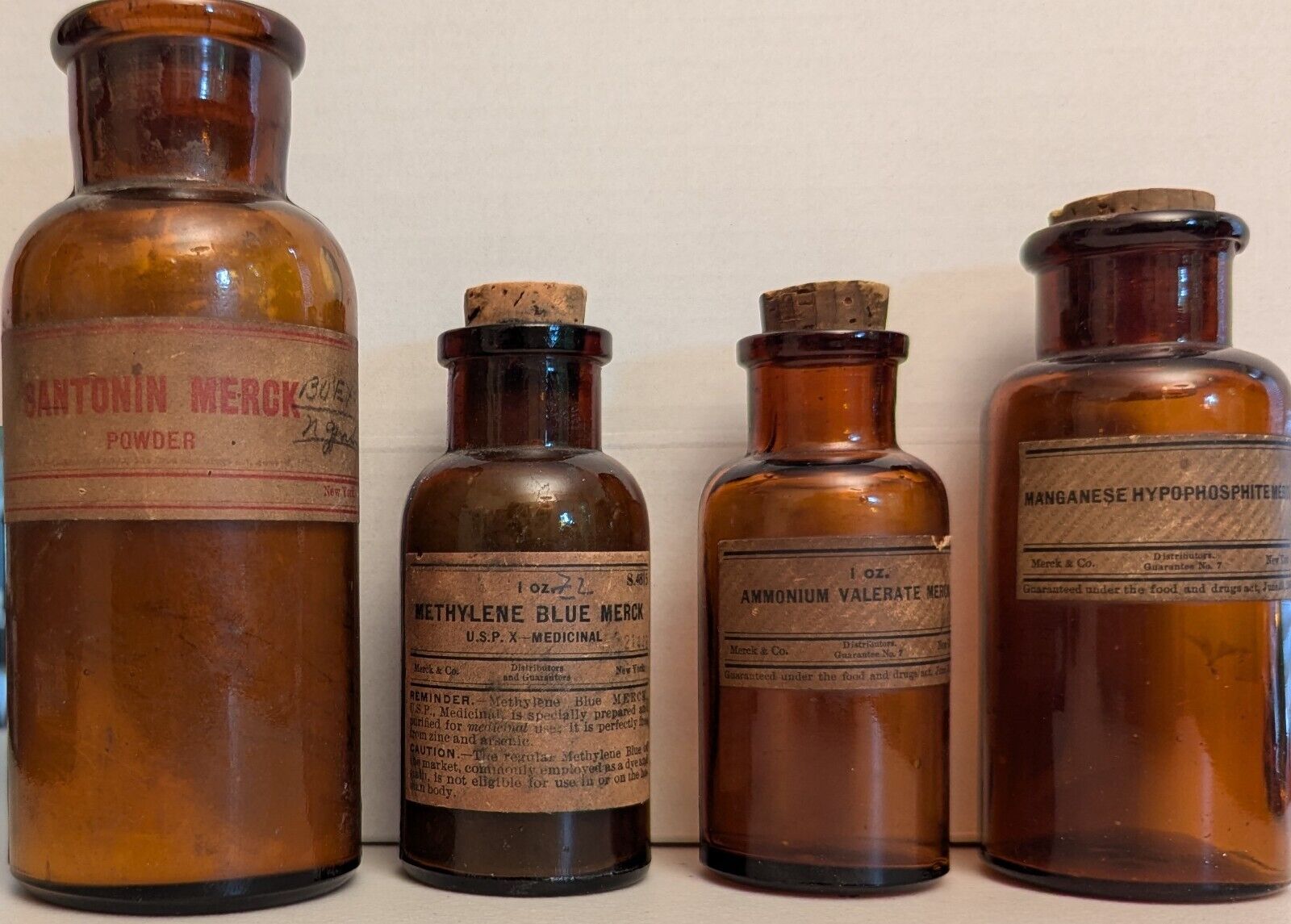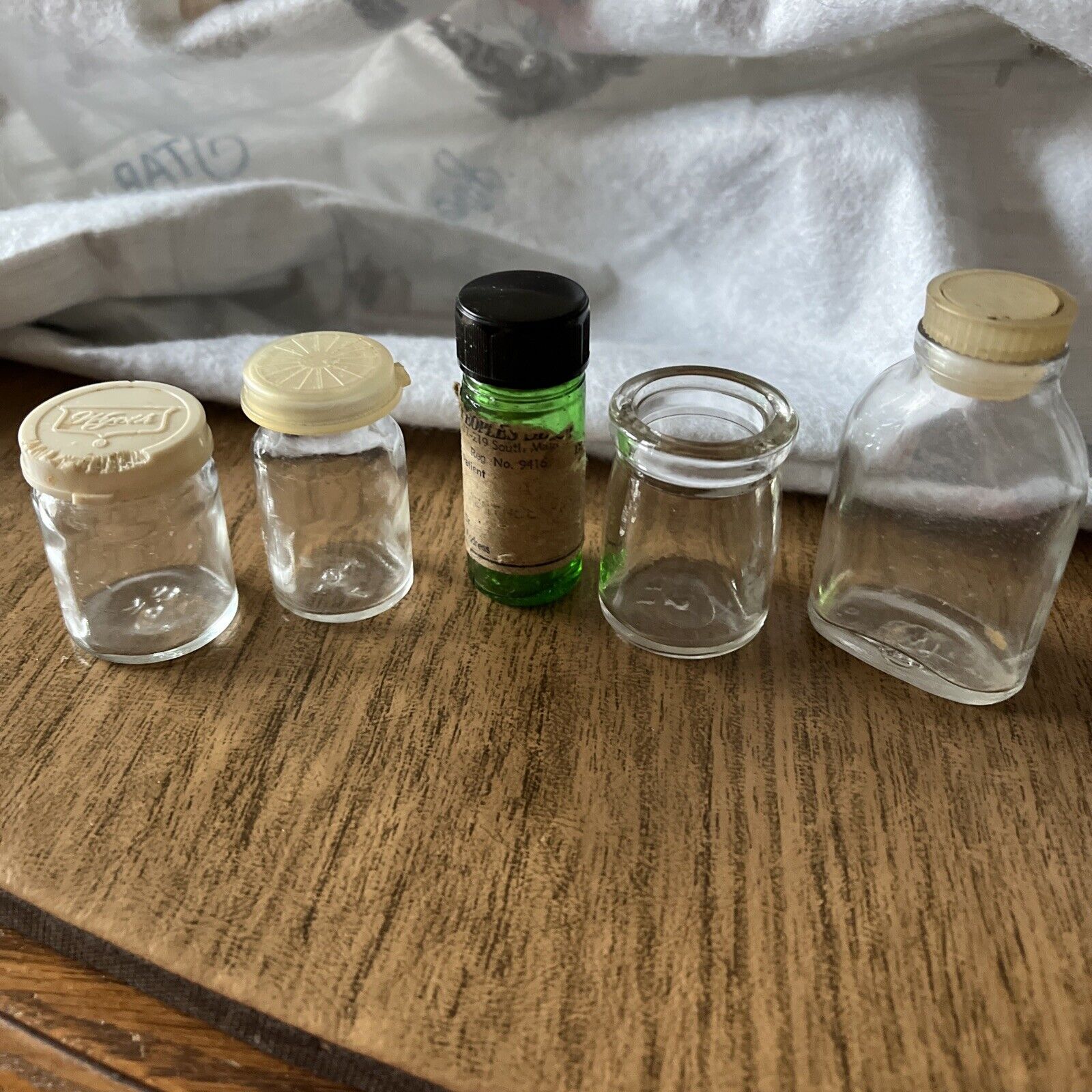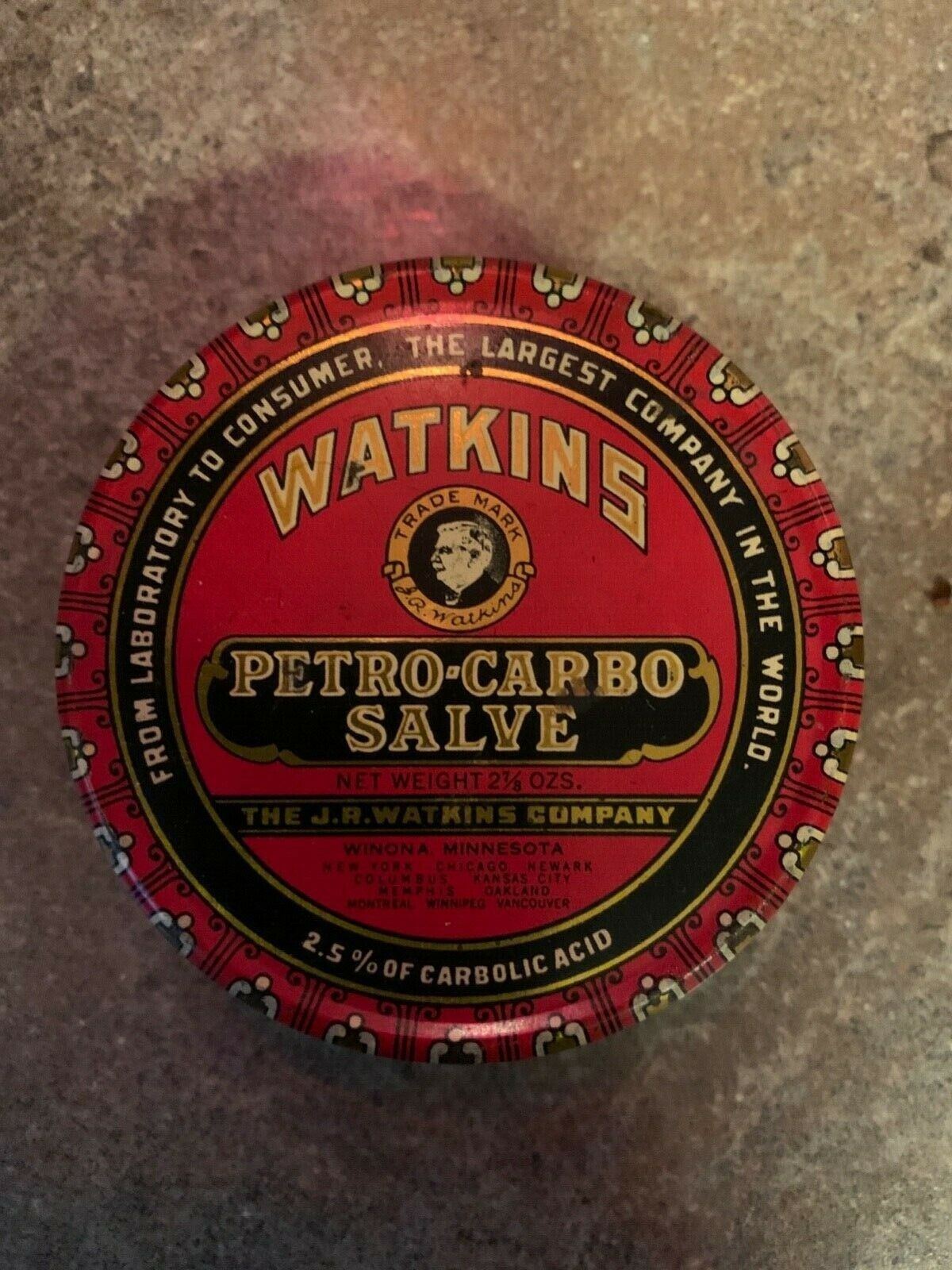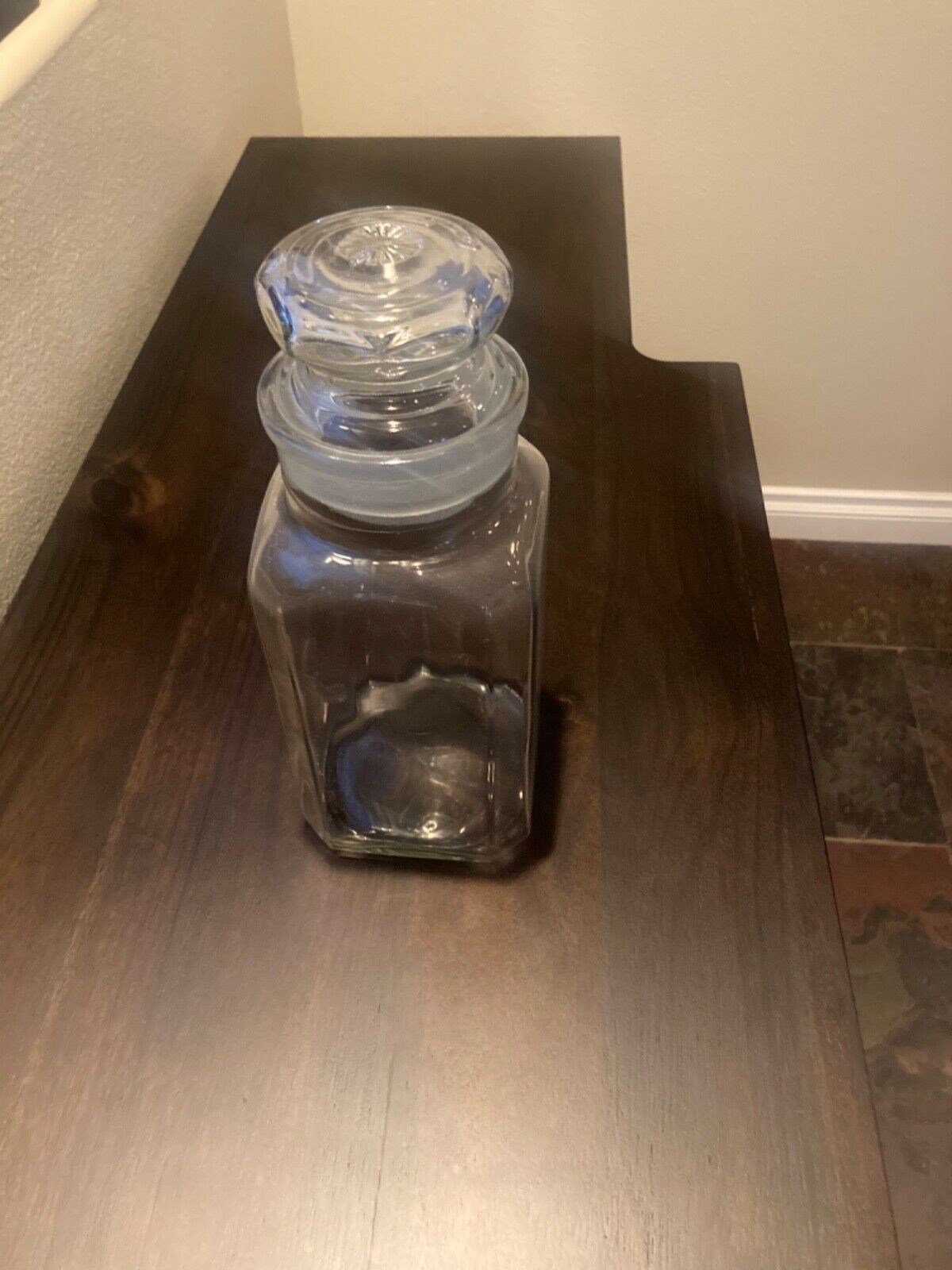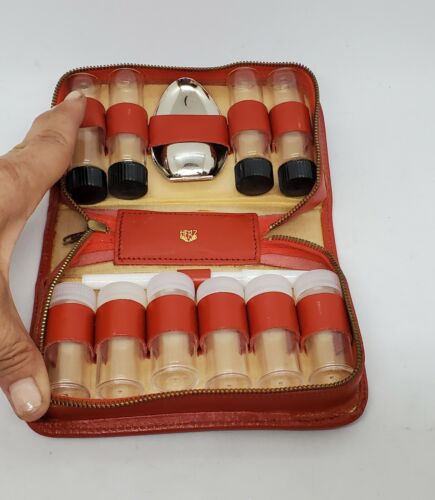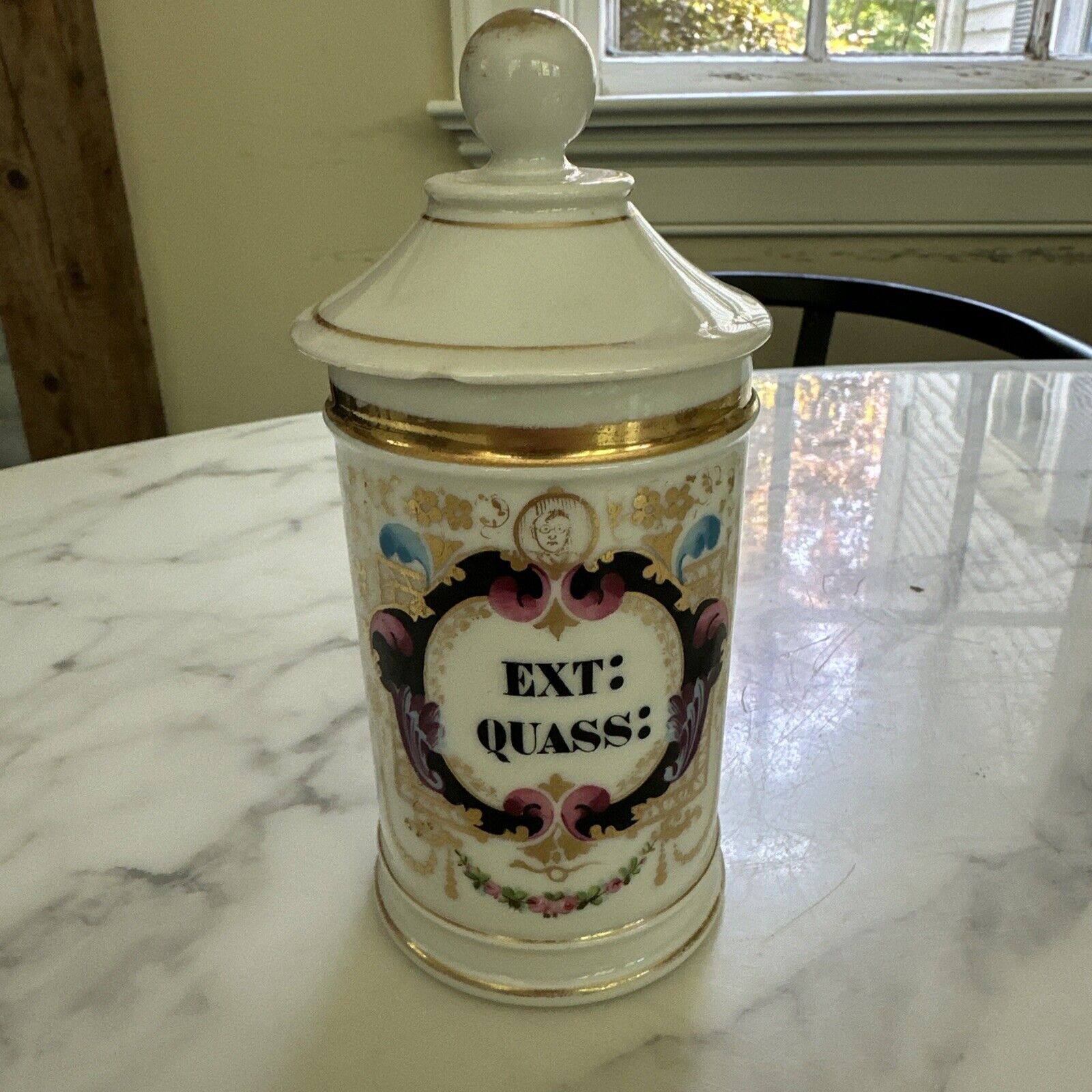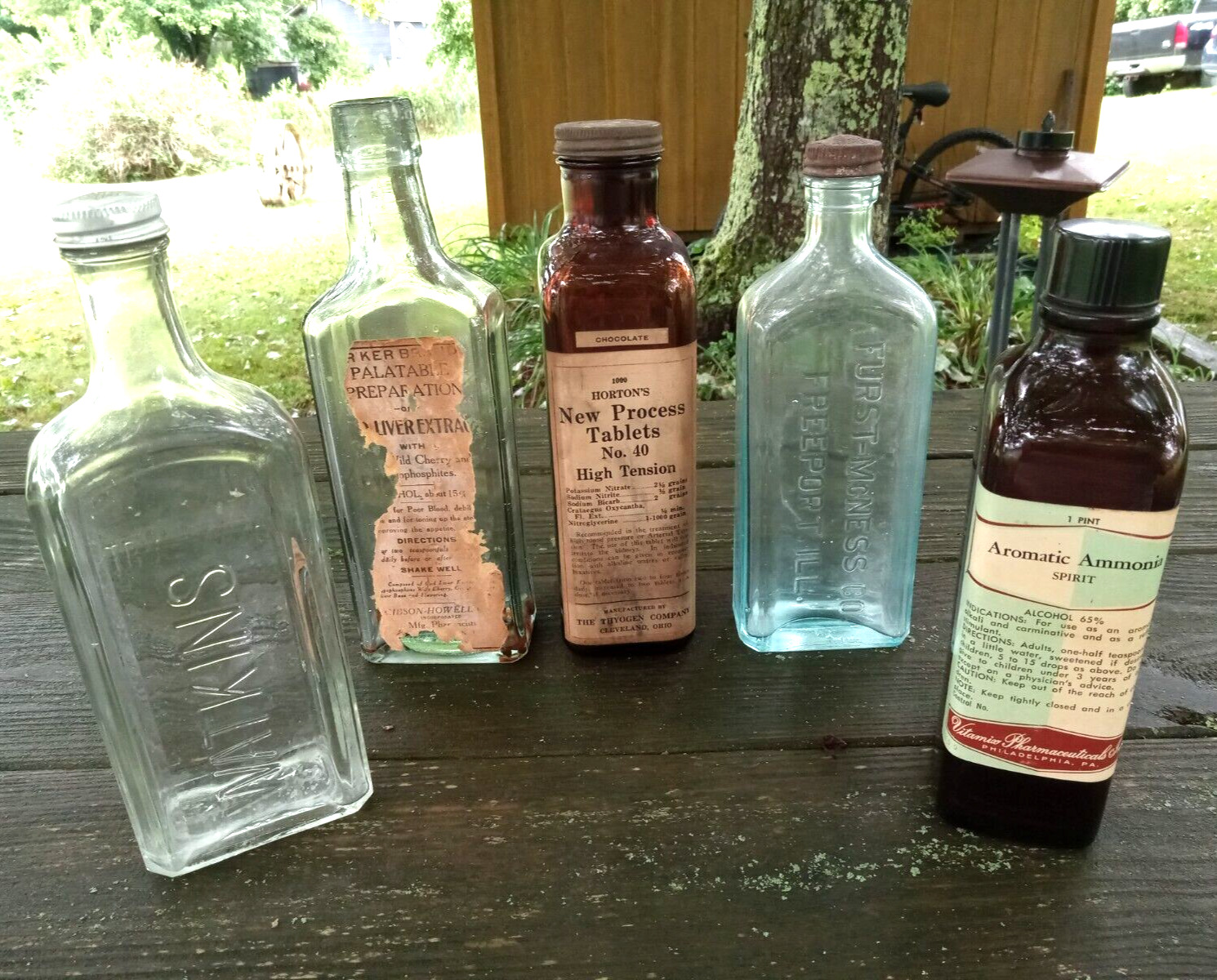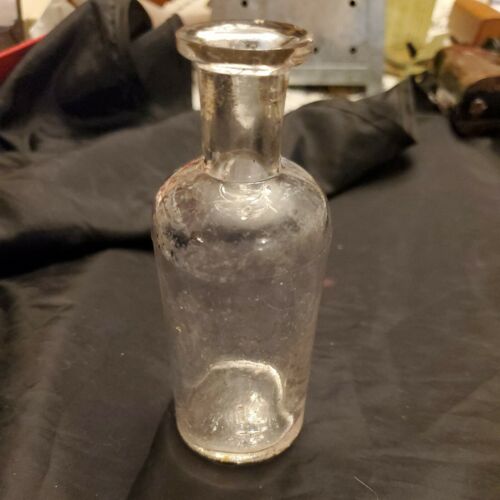-40%
Lot4-4 Antique Drug Bottles and Poisons from Merck & Co., Manufacturing Chemists
$ 10.55
- Description
- Size Guide
Description
Lot #4 - 4 Antique Drug Bottles and Poisons from Merck & Co., Manufacturing Chemists, New Yorkno reserve auction
for display purposes only -- not for human consumption
Each bottle has an intact label
https://en.wikipedia.org/wiki/Merck_%26_Co.
Merck & Co., Inc.
is an American
multinational
pharmaceutical
company headquartered in
Rahway, New Jersey
, and is named for
Merck Group
, founded in Germany in 1668, of which it was once the American arm. The company does business as
Merck Sharp & Dohme
or
MSD
outside the United States and Canada. It is one of the largest pharmaceutical companies in the world, generally ranking in the global top five by revenue.
Merck & Co. traces its origins to its former German parent company
Merck Group
, which was established by the
Merck family
in 1668 when
Friedrich Jacob Merck
purchased a drug store in
Darmstadt
.
In 1827, Merck Group evolved from a pharmacy to a drug manufacturer company with the commercial manufacture of
morphine
.
Merck perfected the chemical process of deriving morphine from
opium
and later introduced
cocaine
, used to treat sinus problems and to add to beverages to boost energy levels.
In 1887 a German-born, long-time Merck employee, Theodore Weicker, went to the United States to represent Merck Group.
In 1891, with 0,000 received from E. Merck, Weicker started Merck & Co., with headquarters in lower Manhattan. That year George Merck, the 23-year-old son of the then head of E. Merck (and grandson of the founder) joined Weicker in New York.
Merck & Co. operated from 1891 to 1917 as the US subsidiary of the
Merck Group
.
After the U.S. entered
World War I
, due to its German connections, Merck & Co. was the subject of
expropriation
under the
Trading with the Enemy Act of 1917
.
The government seized 80 percent of the shares owned by the German parent company and sold it.
In 1919, George F. Merck (head of the American branch of the Merck family), in partnership with
Goldman Sachs
and
Lehman Brothers
, bought the company back at a U.S. government auction for .5 million, but Merck & Co. remained a separate company from its former German parent.
Merck & Co. holds the trademark rights to the "Merck" name in the United States and Canada, while its former parent company retains the rights in the rest of the world; the right to use the Merck name was the subject of litigation between the two companies in 2016.
In 1925,
George W. Merck
succeeded his father George F. Merck as president.
In 1927, the corporation merged with the Powers-
Weightman
-Rosengarten Company, a Philadelphia quinine manufacturer.
George Merck remained president and Frederic Rosengarten became chairman of the board.
In 1929,
H. K. Mulford Company
merged with Sharp and Dohme, Inc. and brought vaccine technology, including immunization of cavalry horses in World War I and delivery of a diphtheria antitoxin to Merck & Co.
In 1953, Merck & Co. merged with Philadelphia-based Sharp & Dohme, Inc., becoming the largest U.S. drugmaker. Sharp and Dohme had acquired
H. K. Mulford Company
in 1929, adding
smallpox
vaccines to its portfolio.
The combined company kept the trade name Merck in the United States and Canada, and as Merck Sharp & Dohme (MSD) outside North America
.
In November 2009, Merck & Co. completed a merger with
Schering-Plough
in a US billion deal
.
Although Merck & Co. was in reality acquiring Schering-Plough, the purchase was declared a "reverse merger", in which "Old" Merck & Co. was renamed Merck Sharp & Dohme, and Schering-Plough renamed as "Merck & Co., Inc. The maneuver was an attempt avoid a "change-of-control" in order to preserve Schering-Plough's rights to market
Remicade
. A settlement with
Johnson & Johnson
was reached in 2011, in which Merck agreed to pay 0 million.
Merck Sharp & Dohme remains a subsidiary of the Merck & Co. parent.
